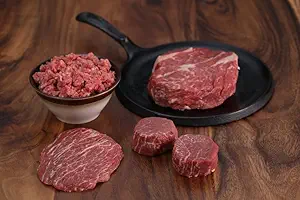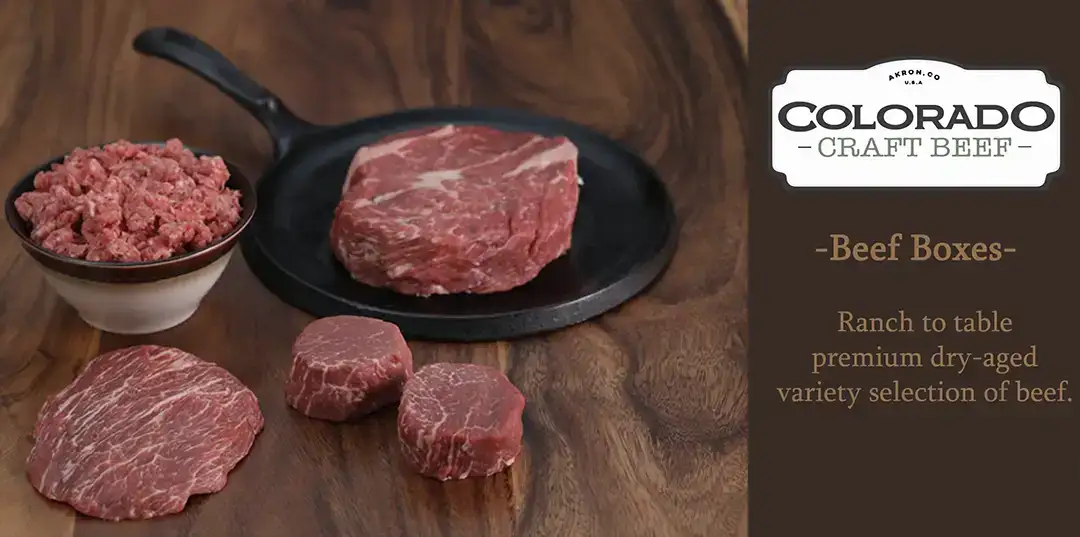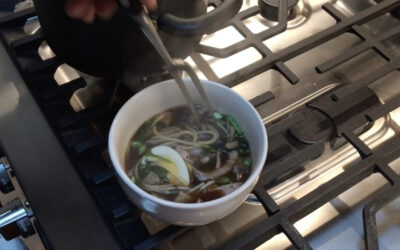
I have to pivot to the “clean eats” lifestyle
As a beer enthusiast who loves nothing more than hitting up local joints for some good grub, I’ve always taken a laid-back approach to what I eat. But lately, I’ve started wondering about all the ultra-processed stuff sneaking onto my plate and into my cooler. Maybe it’s time to lay off the prepackaged snacks and get back to the basics—grilling clean meats and fresh veggies on the Big Green Egg.
Our PFFriends at Colorado Craft have shown us the clean eats way.
Some Try Cooking with Pure Beef Tallow:

Variety Beef Box
Ranch to table premium dry-aged variety selection of beef. Clean eats.
This post may contain affiliate links which means Pints, Forks & Friends may receive commission for purchases made through links. We only recommend products that we personally believe in and use. Learn more on our Privacy Policy page.
What’s the Deal with Ultra-Processed Food?
You wouldn’t willingly eat something that’s been chewed up for you, right? But in a way, that’s exactly what happens with ultra-processed foods. You know the stuff—those frozen meals, snack chips, or boxed cereals that are pounded, melted, and packed with additives. They might taste great with a cold pint, but they’re wrecking your system more than you think.
How Processed is Too Processed?
Even fresh veggies like carrots go through some processing—getting washed, peeled, and packaged—but ultra-processed foods are on another level. Think of your average corn chip. It starts as a humble corn kernel, but by the time it hits your bowl at the bar, it’s been broken down, mashed up, extruded (yes, extruded), and re-engineered into a crispy snack. All that processing makes it easy to eat fast and in huge quantities without ever feeling full. And that’s exactly why you’re reaching for another handful, or a second helping of fries with that IPA.
A Smarter Way to Eat: Clean Eats Grilling
More and more experts are saying ultra-processed foods contribute to everything from overeating to obesity and chronic disease. And when you think about it, it’s no wonder. The stuff is designed to bypass your body’s natural signals, tricking you into eating way more than you should.
Here’s where my Big Green Egg comes into play. Nothing beats a cut of grass-fed beef or fresh-caught fish, seasoned simply and grilled to perfection. Throw on some farm-fresh veggies like zucchini, bell peppers, or Brussels sprouts, and you’ve got a meal that leaves you satisfied without that sluggish, overstuffed feeling. Beer pairs just as well—maybe even better—with real food grilled over a smoky fire than with whatever’s in those processed snacks.
What Happens to Your Food in the Factory?
Let’s be real: food processing isn’t all bad. We’ve been using fire and basic preservation techniques forever. But when food gets too processed, that’s when the problems start. In factories, grains are milled, blasted with heat and pressure, and turned into the base for countless processed foods. That process breaks down nutrients, messes with the food’s natural structure, and makes it all too easy to digest quickly—leading to blood sugar spikes, weight gain, and, eventually, a lot of regrets.
And it doesn’t stop at grains. Meat and dairy often go through their own industrial processes, packed with preservatives and flavor enhancers that make them a far cry from the kind of clean meats you’d throw on the grill at home.
Clean Eats Grilling vs. The “Bliss Point”
A huge part of why we can’t stop eating ultra-processed foods is that they’re engineered to hit what’s called the “bliss point.” That’s the perfect balance of fat, salt, sugar, and artificial flavors that makes it impossible to put the fork down—or stop drinking that craft beer you were planning to nurse.
But when you’re in the clean eats zone, the flavors of real food—grilled meats, roasted vegetables, homemade sauces—shine through. There’s no need for the artificial hit of extra salt or sugar when your ingredients are fresh and cooked right. You get all the satisfaction without the crash, and your body knows when to quit.
Ultra-Processed Foods: A Losing Bet for Your Health
Here’s the kicker: Ultra-processed foods aren’t just bad for your waistline—they’re messing with your whole system. They disrupt how your gut processes nutrients and can leave you feeling less satisfied than if you’d eaten a whole, minimally processed meal. Research has shown people eat faster and more when ultra-processed foods are on the menu, leading to a higher calorie intake without even realizing it.
Compare that to eating a meal of grilled chicken, roasted veggies, and maybe some whole grains. You feel fuller, longer. And sure, maybe you pair it with a beer or two, but you’re not downing extra calories from junk food, just enjoying the simplicity of clean, real ingredients.
Time to Fire Up the Grill
If there’s a takeaway here, it’s that ultra-processed foods don’t just mess with your health—they mess with your ability to truly enjoy food. Next time you’re reaching for a quick snack or another processed bite, think twice. Maybe it’s time to grill up something real, pair it with a cold one, and get back to the basics of good eating.
Learn more about clean eats: Colorado Beef Company
The Latest…
Christmas Ale Bacon Recipe
The Ultimate Christmas Ale Bacon Recipe: Joy in Every...
Discovering Meat Church Recipes: BBQ, Beer & Texas Flavors!
Exploring Meat Church recipes is like embarking on a...
Exploring Yakamein: New Orleans’ Hidden Culinary Treasure
Think you got what it takes to navigate a soup bowl? Allow...





